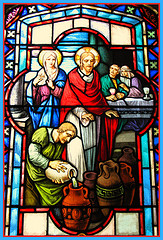I’m going to diverge a little from my usual posts and talk about a topic that combines charity, investing, and entrepreneurship. I’m going to talk about Kiva. Kiva is a website that allows you to give small loans to people, typically to those who live in poor areas of the world. Kiva describes itself as the world’s first person-to-person micro-lending website, empowering individuals to lend directly to unique entrepreneurs around the globe. Its mission is to help alleviate poverty.
I discovered Kiva by accident. I received a gift certificate for it as an award at work. At first I was a little disappointed because previous award winners received items like a new iPod. And who doesn’t like receiving a shiny, new gadget? Not knowing anything about Kiva, I felt like someone had made a donation to charity in my name. That would have been fine and I would have been quite happy if that had been the case. But there was still that little, materialistic part of me that really wanted the cool gizmo. But that was before I learned what Kiva was all about.
Kiva is not a charity in the way you traditionally think of one. You do not just write a check that goes into a large pool of money to be handed out or used for administrative costs. Instead, you are contributing directly to individuals who are trying to improve their lives and the lives of their families. You are not giving people a handout, rather you are loaning them money so they can do something constructive with it. The whole concept reminds me of the saying, “Give a man a fish and you will feed him for a day. Teach a man to fish and you will feed him for a lifetime.” Kiva is the opportunity to “teach people to fish” since they are using this money to build a business, get an education, or improve their situation some other way. It feels great knowing that there is a specific person, with specific goals, who is helped by a small contribution. It is amazing how we have the power to transform lives for the cost of a book or DVD.
You do not earn interest from your loans on Kiva. But you do get your principle investment back and can loan it to others (Kiva has a 98% repayment rate). And that is the most amazing aspect of the whole operation — you have the ability to perpetually help many people for years with a very small initial investment. Think of it like this — a one-time donation of $100 to a typical charity is spent once and is gone. However, putting that same $100 into a Kiva account has the potential to help people achieve their dreams indefinitely. How often can you say that $25 (the minimum loan amount) transformed people’s lives by allowing someone to fix his taxi, grow fruit to sell at a market, and build a home? Those are just some real examples of how my loans were utilized.
It is rare in this world that so little can go such a long way. I’m reminded about the story of Jesus multiplying the fish and bread to feed the masses (John 6). At first no one would have thought that a young boy’s meager offer of a few loaves and some fish would be enough to satisfy so many people. But through the power of Jesus Christ, the boy’s sacrifice did produce enough to feed everyone. In a similar vein, a seemingly small contribution to Kiva can go a long way in helping those who are trying to help themselves. So whose behavior do you want to imitate? Do you want to act like the apostles and doubt that a small contribution might do any good? Or do you want to be like the boy and offer what you can and see miracles happen?
PS: I do not work for Kiva or benefit personally in any way from it. I just think it is something everyone should know about.






